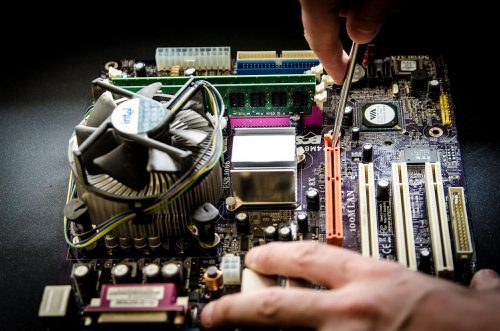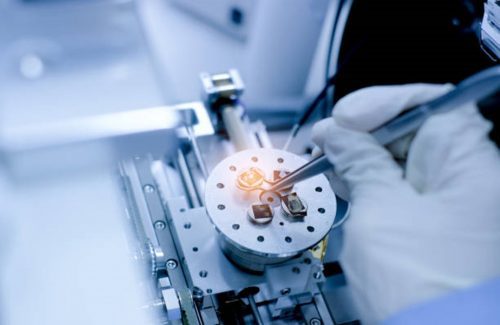A Distance Participation Program with e-learning Management System to provide you all new concepts of semiconducting nanomaterials directly from the experts.
Duration
3 Months
Eligibility
Graduates/ Post Graduates/ PhDs in Electronics or Its associated fields/branches.
Mode
Self-Paced/ Online
why Learn with us?
Program Overview
This innovative program aims to give participants a thorough grounding of marketing and making of Nano gadgets and/or using effective practices to elaborate the career aspects. The program covers the areas, technologies, principles coupled with general and technology orientation towards implementing a robust compliance.
Features of e-LMS
Program work is completed through online system under the guidance of program coordinator
Various Job Opportunities in the Silicon Nanostructure & Carbon Nano Tube
- Photonics Integration Engineer : Photonic integration is still in its early stages, despite the fact that integrated circuits are already dominating technology in the field of electronics. It is a major facilitator of the modern internet and has the potential to enable new forms of sensing and imaging. Photonics Integration (PhI) engineers conduct cutting-edge research on indium phosphide semiconductor-based photonic integration and related applications.
- Senior Silicon Photonics Laser Engineer : As a Senior Laser Engineer, you'll be in charge of driving the wafer-scale integration of InP and GaAs lasers into Si photonics platforms. One will be in charge of laser device design, simulation, layout, data analysis, and qualification, to name a few responsibilities.
- Full custom Analog Layout Engineer : Engineers must design analogue layouts such as PLL, BG, LVDS, IVREF, and so on for various projects including space applications and other research projects, as well as physical verifications such as DRC, LVS, and EM/IR.
- 3D Litho Process Development Engineer : One is in charge of analyzing and debating lithographic process development requests. offering high-quality lithography methods for cutting-edge 3D, logic, and optical interconnect technology platforms to ensure module research and manufacturability.
- R+D Metrology Engineer: One will assume ownership of all metrology instruments in order to deliver precise, resilient, high throughput metrology control solutions for SiC wafer production and R&D.
Admission Procedure
Course Plans
Basic Course
3 Month Self Paced Course
INR 24,999/- or USD 650
Program Assessment:
| Exam | Weightage |
|---|---|
| Mid Term Assignments | 20 % |
| Final Online Exam | 30 % |
| Project Report Submission (Includes Mandatory Paper Publication) | 50 % |
To study the printed/online course material, submit and clear, the mid term assignments, project work/research study (in completion of project work/research study, a final report must be submitted) and the online examination, you are allotted a 1-month period. You will be awarded a certificate, only after successful completion/ and clearance of all the aforesaid assignment(s) and examinations.
Don't know where to start?
Explore our most popular learning topics today




